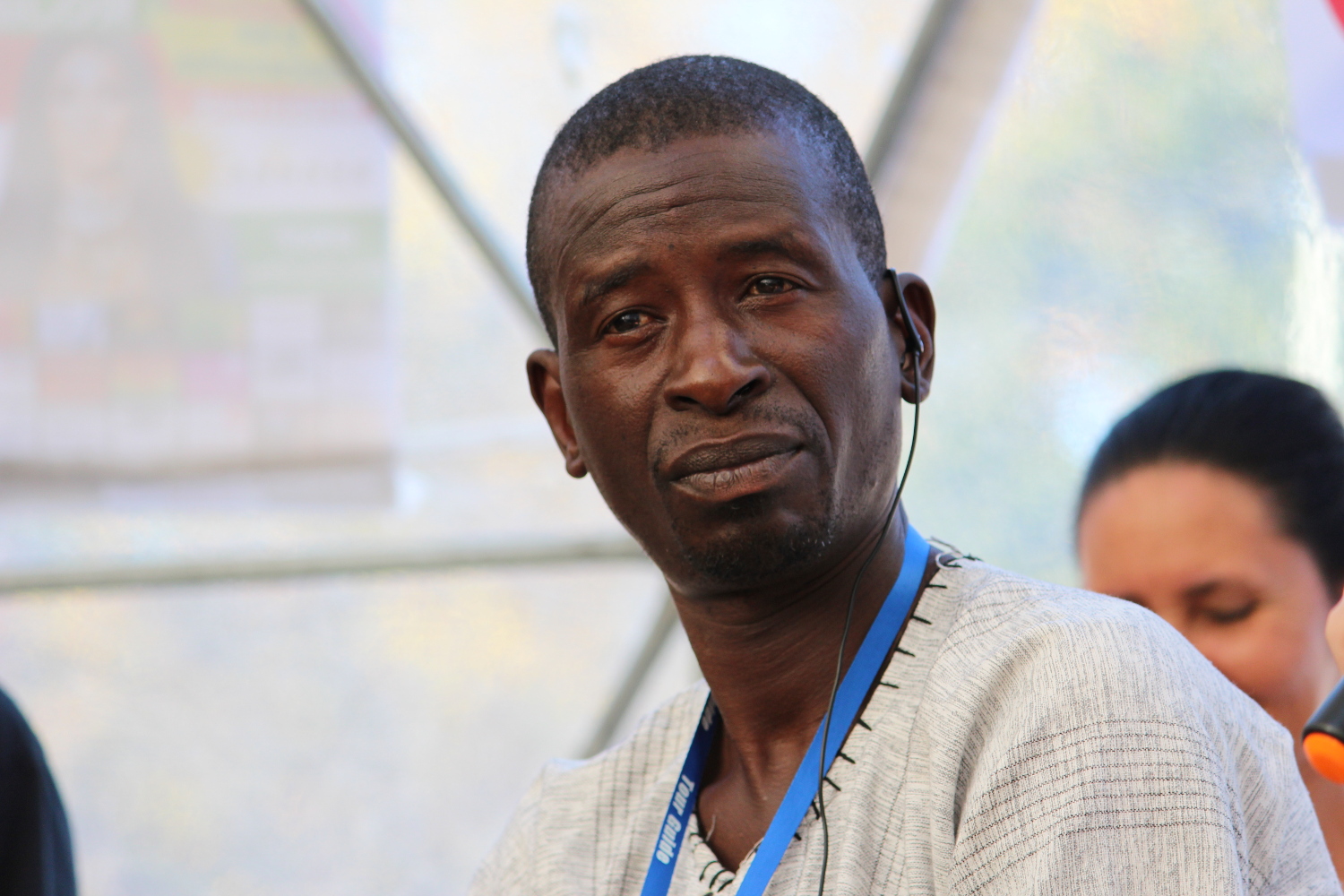Agribusiness cannot dictate people to grow what they don’t eat and eat what they don’t grow: Ngoni, during Binding Treaty negotiations

Ngoni Chikowe, a peasant farmer from Zimbabwe and a member of ZIMSOFF is part of the La Via Campesina delegation in Geneva this week that is joining the Peoples’ Mobilisation during the third UN session on a legally binding treaty for transnational corporations. Here is the full text of the intervention he made from the floor during the negotiations inside the UN
Mr Chairperson, comrades, civil society, allies and friends to be. I feel honoured by this opportunity to speak in his house at this level. My name is Ngoni Chikowe. I am a peasant farmer from Zimbabwe and representing La Via Campesina in Southern and Eastern Africa, and working with Zimbabwe Small Holder organic Farmers’ Forum (ZIMSOFF). I am also speaking for the Global Campaign on Binding Treaty who are assembled in the room today.
I have a small tract of land in which I grow cereals, vegetables and integration of livestock. For me, water – soil – seeds are the essence of what I am, what my family, my community and my region is.
I would like to share with you all about the struggles we are facing in our region as a result of Transnational Corporations who come an violate our rights.
The first struggle is on seed law harmonisation. Our national governments are being pushed into signing protocols on harmonisation of seed laws – allowing an easy entry into the African market for industrial seeds corporations – leaving us peasants wondering who is pushing this agenda. Our governments bring in the so-called Foreign direct investments with the promise of creating employments and give these TNCs an easy entry into our lives and territories. And I keep wondering Mr Chairperson, why this agenda is not a collective effort involving us peasants as we are the end users of their so-called products.
These decisions are side-lining our indigenous seeds – which are not regarded as seeds by national laws and are not allowed for sale, but only allowed for exchange. It destroys our bio-diveristy and replaces with maize and only maize! Mr Chairperson, the laws on seeds favours large industrial seed houses at the expense of peasant seeds – which our grandparents have grown over generations. The harmonisation of regional seeds laws is the brain child of corporate world to generate wealth and to make profits.
The other struggle I want to talk about is INDIRECT land and production-labour grabbing – coming in the form of contract farming, where farmers are lured by the promise of lucrative markets for cash crops such as cotton, tobacco, paprika etc. Peasants never play a role in drafting these contracts and it is often forced upon them.
They are then given loans and inputs to grow and produce mainly for exports outside our countries. Contract farming leaves peasants heavily indebted.
The intended use of land and production-labour changes – towards producing what they don’t eat and eating what they don’t grow.
Then when our food systems break down, peasant communities are provided relief by relief organisations who supply with food that is devoid of culture and nutritional values.
Hence Mr Chairperson, in La Via Campesina, we insist on talking of food sovereignty – where people have ownership and control of their local food systems. A binding treaty, will give us an important tool to access justice, when our national governments fail us. It will put rights of peasants and rural workers above the interests of corporations and their friendly governments.
I also want to highlight the devastations caused by extractive industries in my country and region. Companies that are into coal, granite mining displace communities from their territories, cause environmental degradation, contamination of our water and rivers, destruction of grazing pastures.
These companies bring in workers from very far away separating them from their families and exploiting them with impunity. Occupational hazards that arise of such exploitation are not compensated.
Empty promises are made on their so-called social responsibilities – where they promise to build clinics, upgrade roads, electrify schools and so forth – but in reality they do not fulfil any of these obligations yet continue to evade taxes they should pay our local councils.
My people are witness to these broken promises every day. When we cross into these industrial lands, or when our cattle stray into their premises, their private security agents attack my people violently.
Mr. Chairperson – as I said earlier – water, soil and seeds is our life and livelihoods.
For long, this plunder has been going on in our territories and we wont take it any more.
We need a binding treaty now and I dare to say that every State representative in this room who is blocking this process is actually blocking the will of your people back home.
Thank you.
